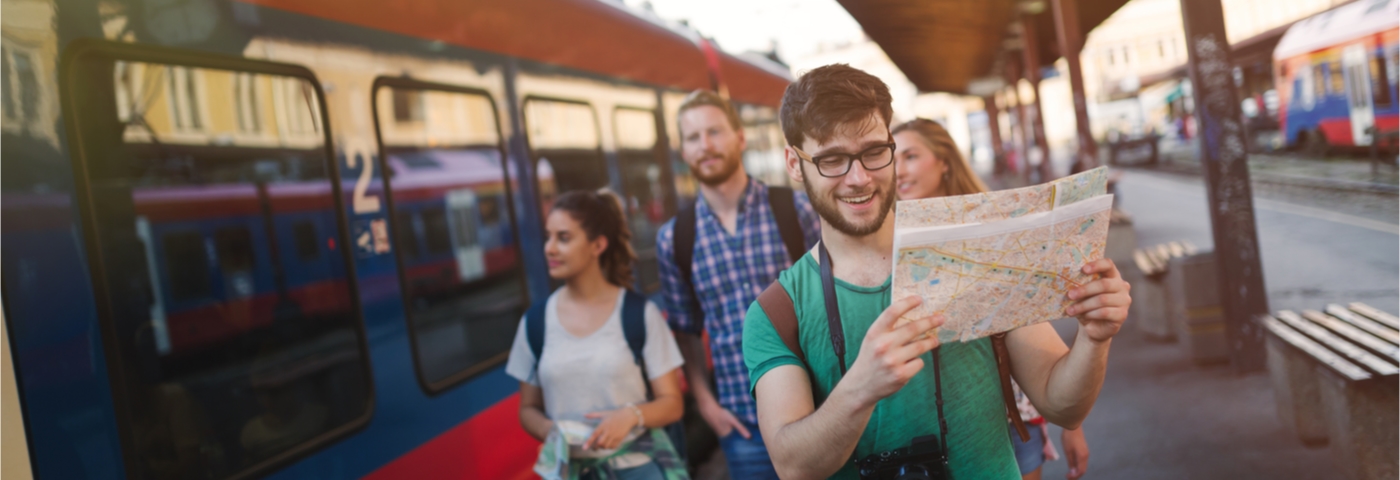Early this July, the Jazz Night Express will take a trainload of passengers from Rotterdam to Berlin. Along the way passengers will be able to enjoy live jazz acts, spoken word performances, and DJs through the night, with two carriages set aside for performances. The train only makes one return trip a year, as it has been doing since 2016. And it’s got me wondering about the potential to reimagine our train journeys not just as ‘the more sustainable option’, but as a highlight of our holidays in their own right.
The time is right. Night trains are seeing a resurgence in popularity, with several new lines opening up. And at the end of this year the deregulation of the European rail network – enabling operators to bid to run train routes outside their home country – could see longer journeys made much more viable.
However, I believe there is one recurring mistake those of us arguing for train travel continue to make. We keep trying to make the arguments for trains over aviation using criteria that are more favourable to flying. Just this week, for example, much of the news around the announcement of a new London to Amsterdam direct train has been about how no longer having to change trains in Brussels has shaved 30 minutes off the journey.
Aviation is about speed and price. On the whole, trains are never going to be faster than planes. There are numerous journeys – London-Paris being perhaps the best known – where the time difference is negligible, and the prices often comparable. But by promoting our new train journeys by focussing on how much quicker they are than before, we are reinforcing the fact that they aren’t, in general, as quick as flying. We really shouldn’t be framing the argument as being about speed.
Instead we should focus on the time you can have on the train, and how a longer, more comfortable, less stressful journey gives you more time to enjoy yourself. We need to promote the joy of slow, not the convenience of the slightly more fast.
There’s loads of inspiration to be had for this.
There used to be a disco on the snowtrain to the Alps. There are themed train journeys all across the world that people book as the experience in themselves, from Murder Mysteries to some remarkable Japanese trains, such as the Toreiyu Tsubasa, designed to be like a travelling onsen, where you can soothe your feet in a relaxing foot bath while watching the countryside scroll by.
We don’t have to go this far. But what if trains stored board-games and packs of cards on board that you could rent out from a menu? Those tables are perfect for a game of Risk. Or if they created free audiobooks that you could listen to, synchronised to the journey, to tell you about what you are seeing from the window? The possibilities are endless, for people interested in history, art, wine, architecture, wildlife…
Trying to shift people’s behaviour patterns to more sustainable ones is hard enough, and it isn’t made any easier if we frame our messages the wrong way. We won’t win many converts promoting trains as “not quite as quick as the train but getting better, and only more expensive due to unfair subsidies”. We need to do everything to make people see them as somewhere that offers abundant time to read, play games, or catch up on all that you can’t do when bombarded with the many demands that daily life puts upon your time.


